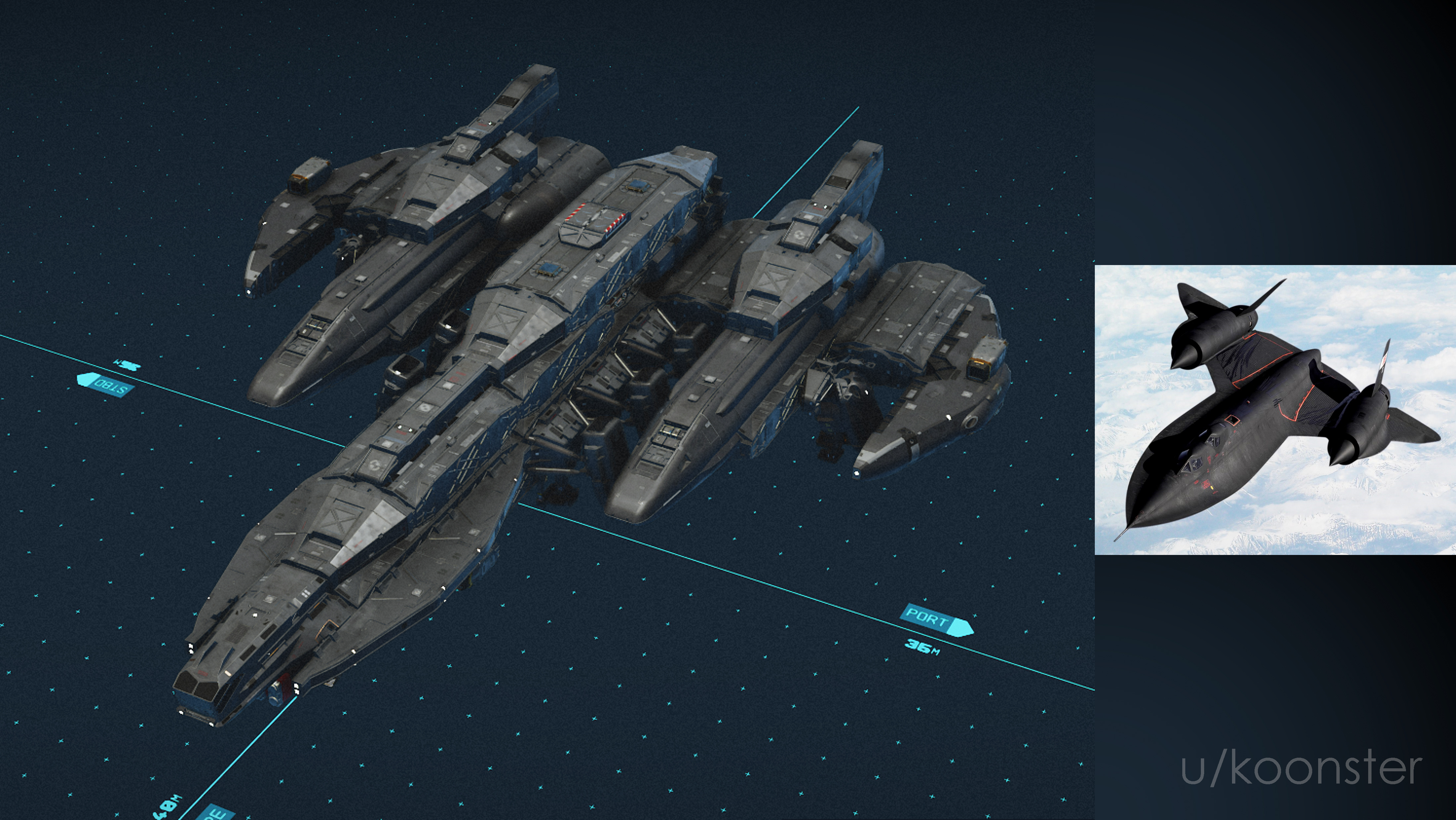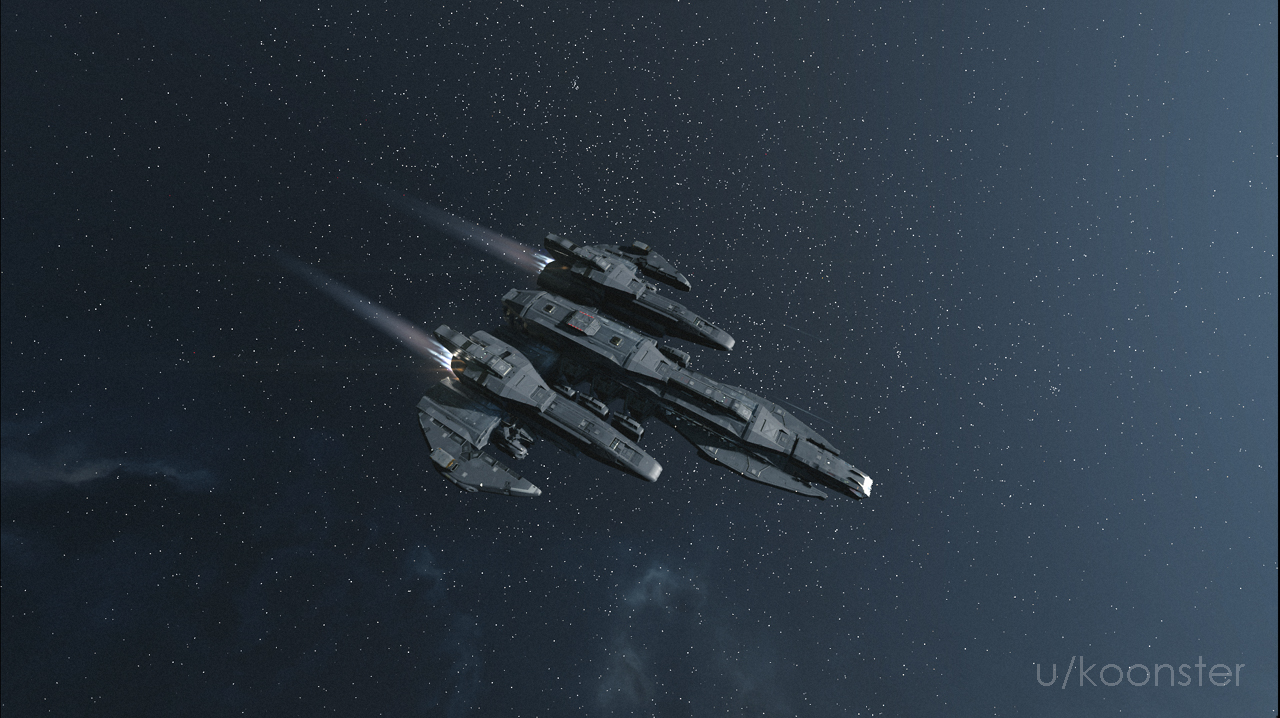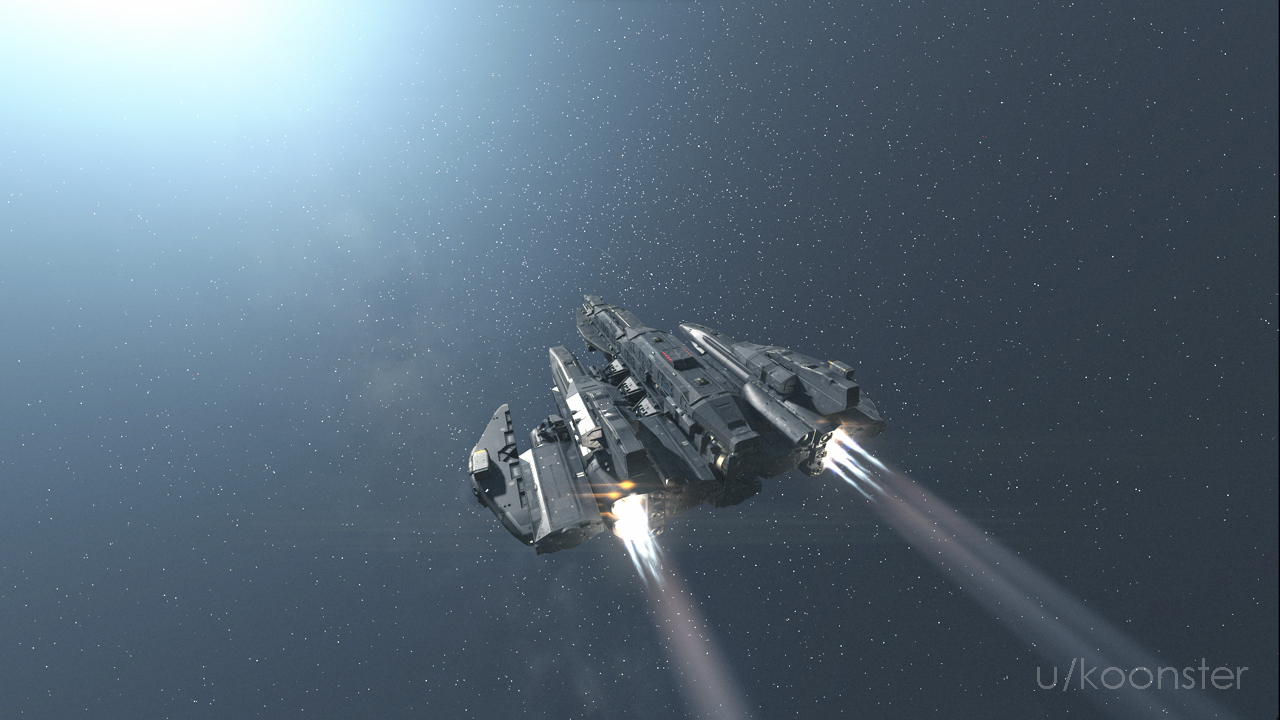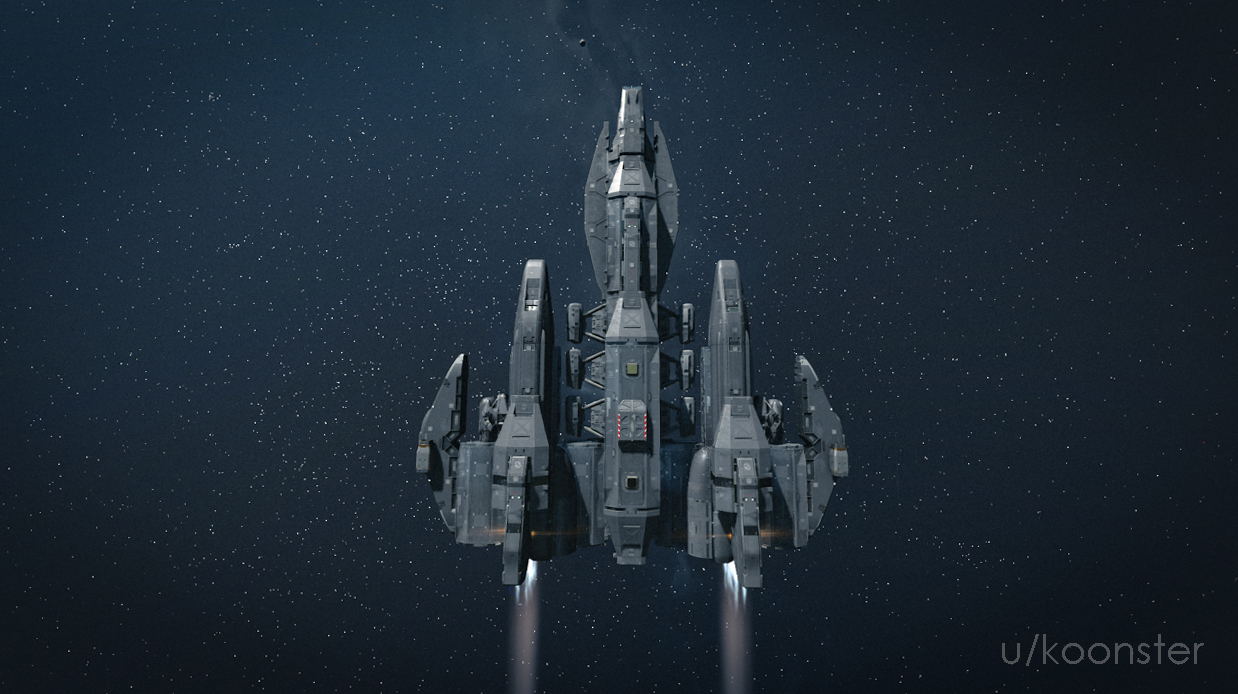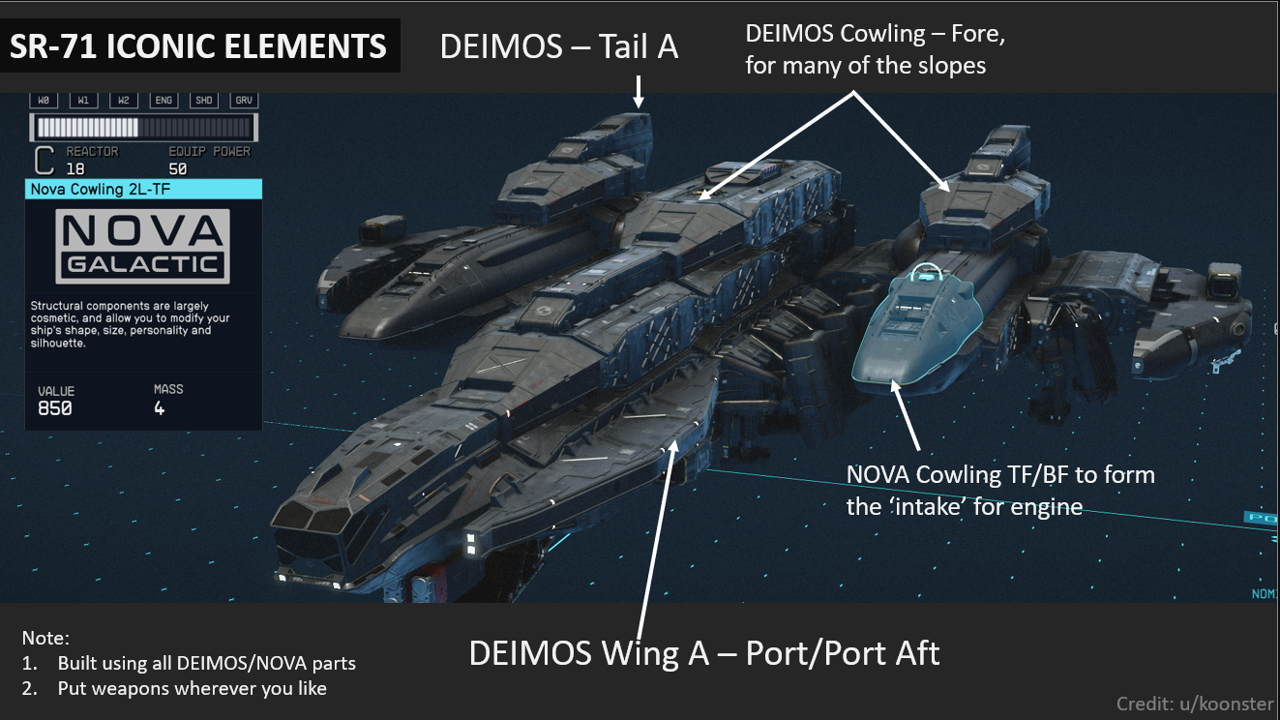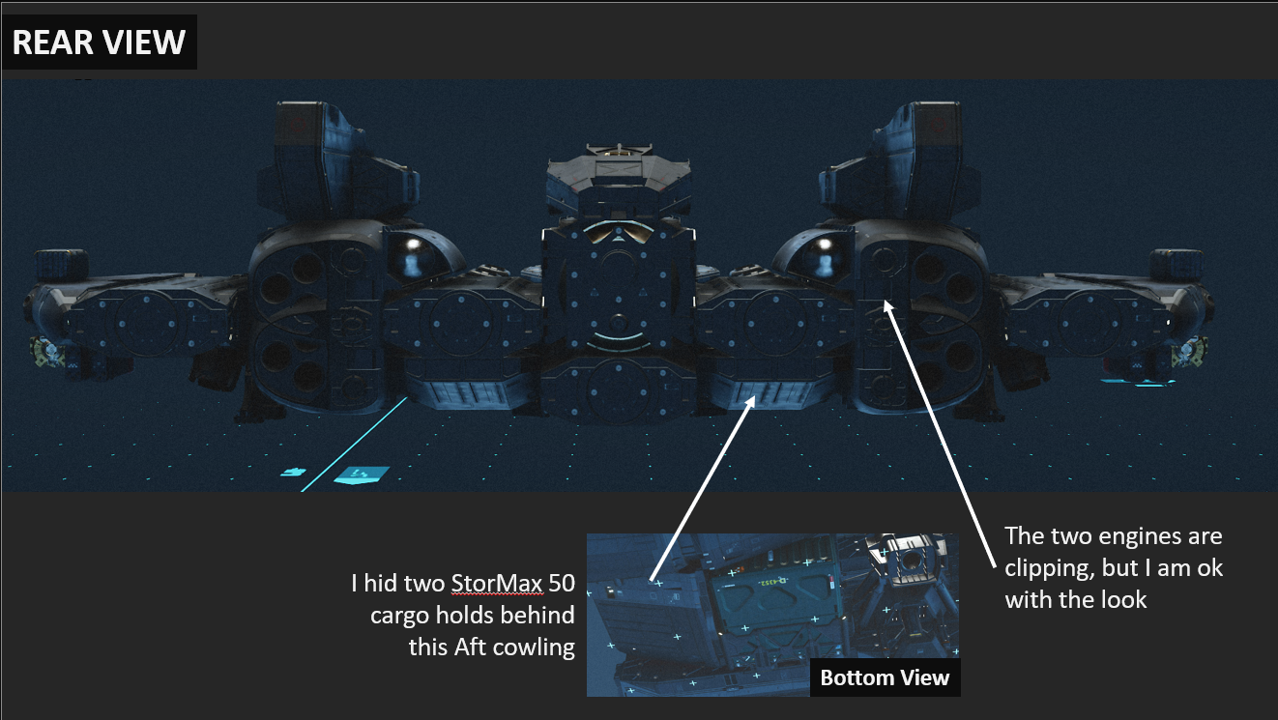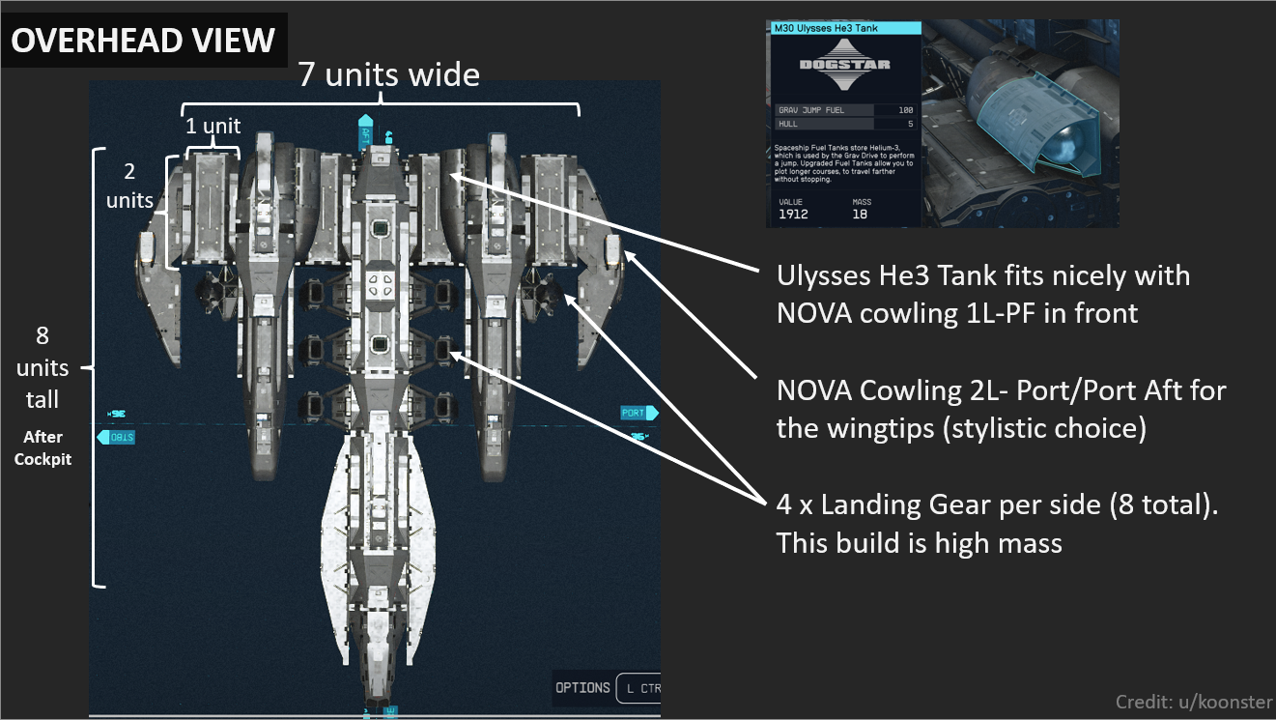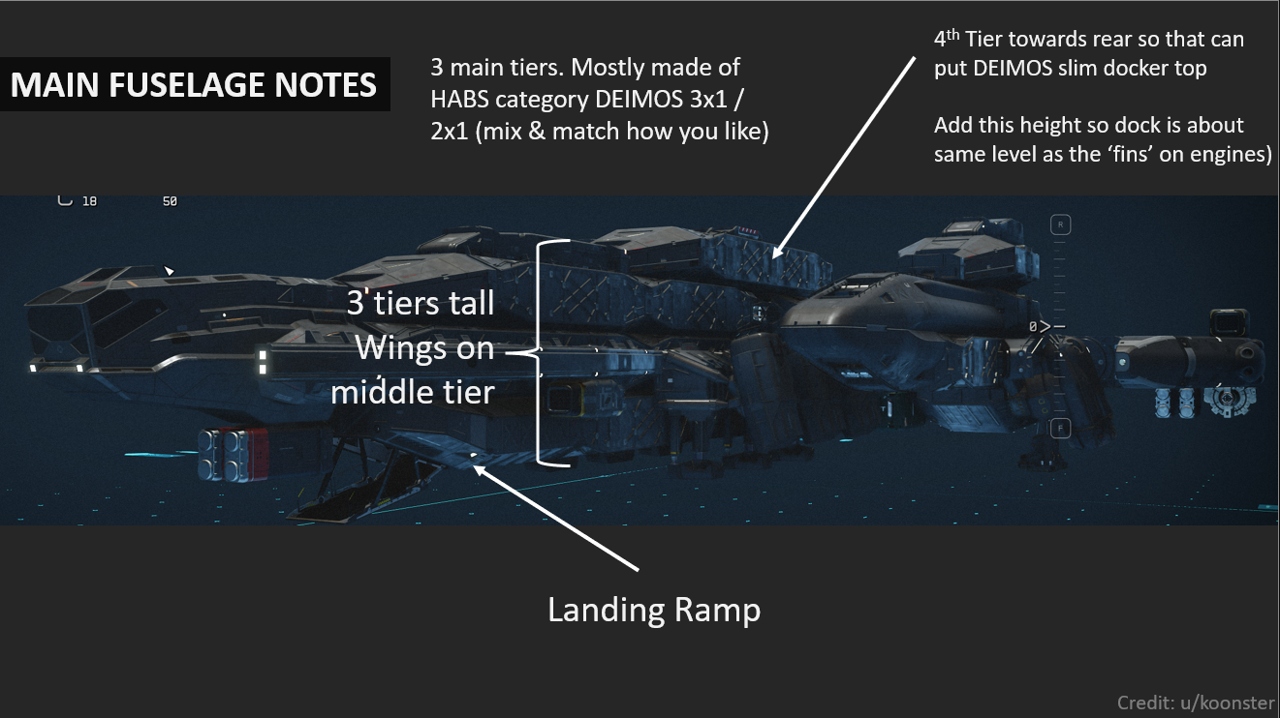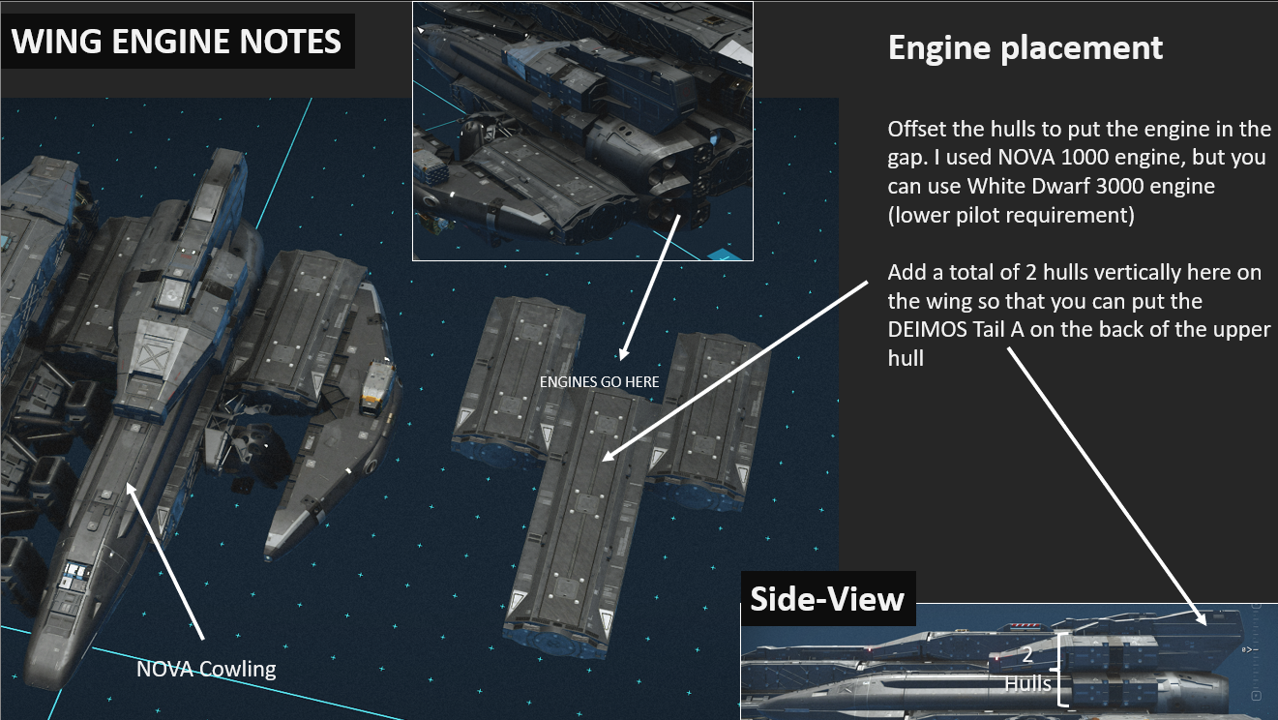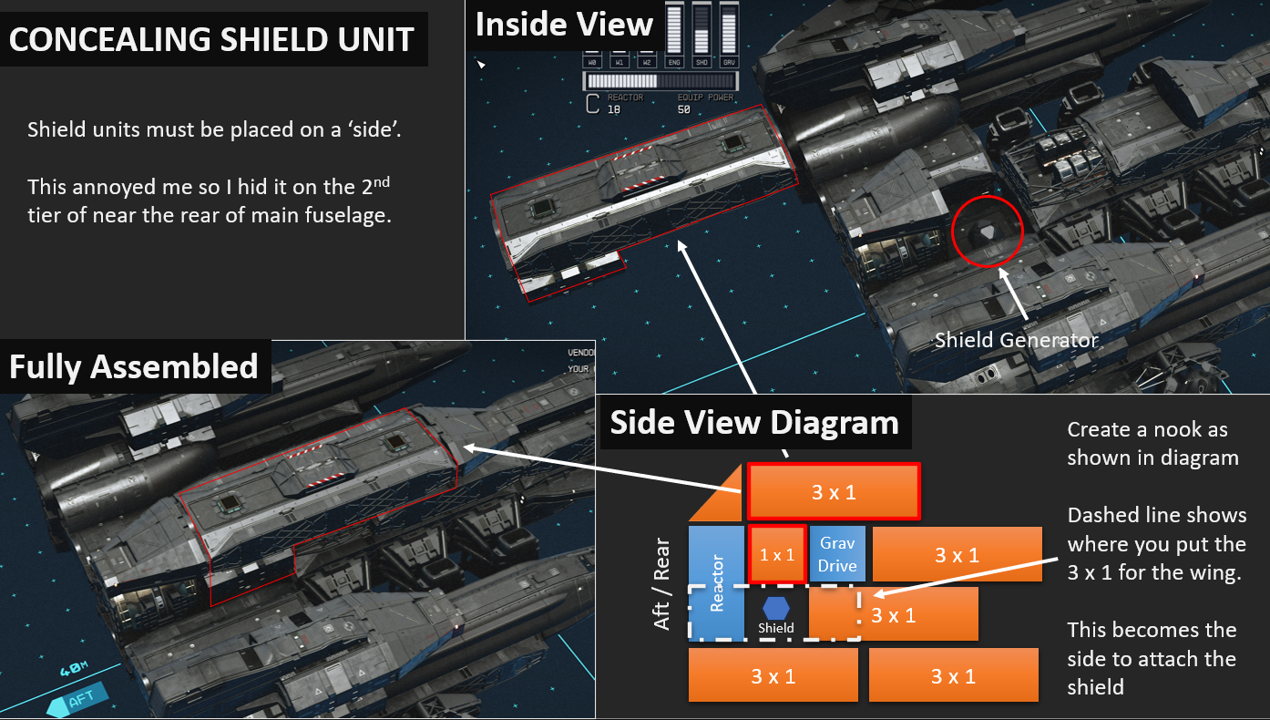SR-71 Blackbird Build Guide
- See also: Ship Builds
This ship build, Created by the reddit user u/Koonster, has the appearance of the famous Lockheed Martin SR-71 Blackbird, the high-speed reconnaissance aircraft with a unique and striking look.
Ship Build Gallery
Ship Build Guide
Description
The build is built using Deimos/Nova parts. Put weapons wherever you like.
Parts
Iconic Elements:
- Deimos Tail A
- Deimos Wing A - Port Aft
- Deimos Cowling - Fore: for many of the slopes
- Nova Cowling TF/BF: to form the intake for the engine.
Rear View:
- StorMax 50 Cargo Holds are hid behind the aft cowling
- 2 Engines are clipping but okay.
Overhead View:
- M30 Ulysses He3 Tank fits nicely with Nova Cowling 1L-PF in front.
- Nova Cowling 2L-TM Port/Port Aftfor wingtips as a stylistic choice
- 4 Landing Gears on each side (8 total)
- The build is high mass.
Main Fuselage Notes
Images
SR-71 Blackbird Appearance Description
The SR-71 Blackbird is an iconic figure in the annals of aviation, exuding a sense of enigma and awe-inspiring capability. Its aesthetic design seems to mirror its high-stakes Cold War-era missions; it looks like something not of this world, a machine sculpted for sheer speed and stealth.
At first glance, the SR-71 appears almost predatory, with its long fuselage tapering to a point like a spear. This isn't a craft filled with frills or extraneous design elements; it is built for a singular purpose—high-speed, high-altitude reconnaissance—and its appearance is an unambiguous testament to that function.
Covered in a dark black matte finish that dissipates heat, the SR-71 has an otherworldly, ominous presence. Its black skin isn't just for show; the specialized material helps it manage the extreme temperatures generated by Mach 3+ speeds. As you move closer, you might notice that the surface isn't completely uniform; it is interspersed with various hatches, maintenance panels, and subtle seams, each serving a specific functional purpose.
Its twin-engine nacelles are positioned on either side of the fuselage, not unlike wings on a bird of prey preparing to dive. They seem to hint at the incredible power contained within, engines that could propel this craft to altitudes of 85,000 feet and beyond. A set of sharply angled vertical tail fins rise assertively from the rear, framing the engines like svelte guardians.
The cockpit sits nestled between the long, forward-stretching chines, almost as if it's an afterthought, dwarfed by the overwhelming impression of speed and power embodied by the rest of the craft. The tiny windows give an inkling of the cramped, no-nonsense conditions under which the pilots operated, isolated from the world below but crucially connected to the geopolitics of their time.
The SR-71 doesn't just look fast—it appears almost ethereal, as if it were a creature from another dimension, sent here on a mission we can barely comprehend. Its appearance, characterized by sleek lines, severe angles, and an almost predatory demeanor, is a perfect marriage of form and function, a visual manifesto announcing its unparalleled capabilities. Every inch of its design whispers—or perhaps screams—the same message: I am built to defy limits.


